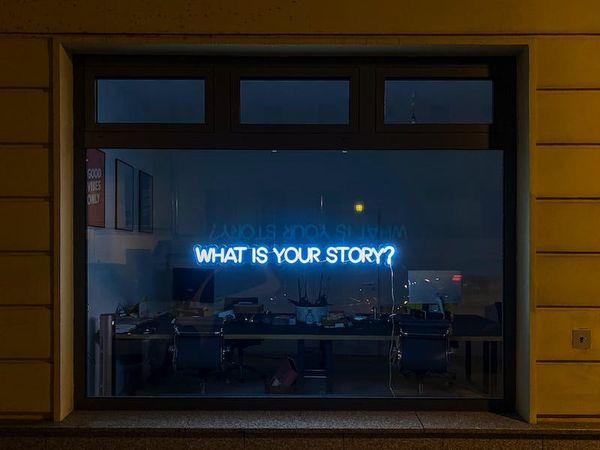The missing half of self-development

Welcome back to the Effortless Action Newsletter! Every Wednesday, I share findings from across a range of disciplines to better understand “What gets us to take action?”
Self-help is an $11 billion industry. There are droves of people out there to help you on your journey to become a better version of yourself. (Yes, I’m one of them, get off my case.)
It’s turned into an obsession.
But is that such a bad thing? If you’re becoming a better version of yourself, isn’t it a win-win? What would even be the alternative? You don’t want to be complacent!
Yes, you rebel, I hear you. Unfortunately, too much of anything can be toxic. And for that toxicity, we need an antidote.
But first, let’s better understand our poison.
The obsession with self-development
If you are too focused on growth, then you don’t get to enjoy where you are and what you’re doing.
Bear with me as I beat a metaphor into the ground:
Imagine you’re free to travel around the globe, without a care for money or responsibilities. You pull up a list of the “Top 50 Vacation Spots” and decide you want to hit them all. You fly from the one to the next best, trying to find the perfect one. Iceland was a little too cold, but the Bahamas should be perfect. Though the internet in the Bahamas is a little lack-luster, so maybe you should try somewhere else. You don’t spend more than a day exploring each place, constantly on the move to the next bigger, and hopefully better, vacation spot.
Crazy, isn’t it?
It’s a little bit out there, but self-development isn’t much different. If you’re chasing the best habit, the end-all-be-all self-help book, or the last productivity tip you’ll ever need, you’ll always end up chasing the next hack without being content with where you’re at today.
There are two big issues here:
1. Self-development is entirely subjective
What’s right for you may not be right for someone else. You have different journeys, different things you enjoy, different thoughts, and means of happiness. Success to someone else is not success to you.
With too heavy a focus on self-development, you seek something outside yourself to fix something within yourself. It’s a tad counter-intuitive.
Unfortunately, the knowledge of tips, hacks, and tricks can only get you so far.
2. The hedonistic treadmill
It’s extremely easy to fall onto this hedonistic treadmill, setting one goal after the other, thinking that once you get your dream job or win the lottery, then you’ll finally be happy.
Goal setting and thinking about your future self can be nice and all, but there’s someone you’re neglecting:
Your current self.
Enter self-acceptance
Self-acceptance is the antidote to self-development. The two are the Yin and Yang of the self-help world.
Note the choice of words here, self-acceptance instead of “self-love” or “self-care.”
While those two are components of self-acceptance, they often have a certain connotation of recklessly spending your money and pursuing pleasures instead of fixing the root issue.

It’s not about just taking a bath or going on a spending trip, it’s about being nicer to yourself. You can have a spa day, but if you’re constantly calling yourself a lazy shit because you aren’t getting anything done, that’s not self love.
Self-acceptance is about making time to understand what makes you joyful , not pleasureful. It’s not about what you achieve, but rather what you think about yourself. How you talk to yourself. What you believe about yourself.
It’s not about indulging or giving in to your desires. It’s about doing the things that are good for you. That show you that you care about yourself.
Every time you say you should do something, or that you wish you could be a better version of yourself, you’re subconsciously telling your present self a really strong message.
“You’re not good enough.”
Harsh, isn’t it?
How to implement
As Yin and Yang teaches us, we need balance. Too much self-development, and you lose your present self. Too much focus on self-acceptance, and it’s possible you stagnate in life.
Though it may seem counter-intuitive, this balance of self-acceptance and self-development can help you take action.
Self-acceptance is all about cultivating positive emotions and removing negative pressure. Those positive emotions and freedom from others’ expectations can help you on your journey to becoming a better action-taker.
So, how do you balance the two?
Reflection
Reflect on how you’re spending your time and mental energy. Are you usually more focused on growth or acceptance?
Regardless of how you do it, it’s important to reflect via writing or speaking. This allows you to clarify your thoughts by getting focused on the topic and slowing down your thoughts.
Everyone and their mother has self-development tips out there, so instead, here are 5 ways to make a little more time for self-acceptance:
- Make time to reflect on the things you say about yourself. Why do you believe those thoughts? When you boil it down, it’s most likely some form of expectation, usually placed on you by someone else. Imagine if you said those things to someone else. Would you feel good? How about if it was reversed?
- Reflect on your wins of the day. Even the smallest things. Sit there and understand the bounds of your accomplishments. Though this one gets tricky, because you need to be careful not to tie these things to your self-worth. Output is not a healthy measure of what you amount to. Instead, this is to bring light to the rational side, to say “hey I still got a few things done today, despite…”
- Squish ANTs. ANT stands for Automatic Negative Thoughts. While this could be a topic for a whole newsletter in and of itself, you should start to watch out for these as they pop into your head. For more info, read here .
- Analyze the difference between what you think and what you know . You know you’re a good person, but sometimes your thoughts don’t correlate with that. There’s a difference between the two, and thoughts are louder than knowledge. Let the knowledge out through reflection.
- Get clarity on your real expectations and desires. Just because you should do everything doesn’t mean you can. Get a narrow focus on what it is that truly matters to you. For me, it’s shipping this newsletter every week. If I do that, then I’m set. The fewer expectations you set, the easier it is to follow through, thus the more likely you are to build the identity of someone who follows through on their expectations.
Thanks for reading!
Hey you. Thanks for reading to the bottom!
If you enjoyed this, there’s much more to come. I’d love to hear your feedback, either through a comment, or you can simply reply to this email.
I hope you have a wonderful day, and as always, I’ll work on creating a catchy phrase to end this newsletter with.
(Or maybe, that one is good enough how it is.)



